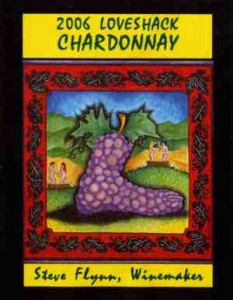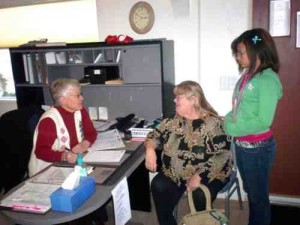Column by Hal Walter
Economy – February 2009 – Colorado Central Magazine
AS THE SNOW BEGAN TO FALL, I built a pretty big bonfire in the fire pit near the house. Since the ground was already covered with snow and more fresh powder was falling it was safe to light up some branches and old papers that had been accumulating like so much psychic baggage.
Since we changed out the real woodstove for a propane faux woodstove four years ago, it’s been more difficult to dispose of bank and credit card statements and other “sensitive materials.” I had a bag of such papers stored up for an outdoor fire — and also last year’s well-cured Yule tree — so soon a cheery blaze was cracking. As I pulled the papers out to feed the flames, I couldn’t help but notice several blue Pueblo Chieftain pay stubs among the fuel, and the symbolism wasn’t lost on me, it being only one day after I was told I would soon be laid off.
My son Harrison was very intrigued by the flames and watched intensely. There is something about an outdoor fire that tugs at the primal instinct inside all of us.
The experience was very cleansing, and, fired up, I dashed off through the snow for a five-mile run.
That evening I went outside to make sure the fire was out. The storm had left, leaving the night brighter than the day with a big moon reflecting off the snow and from the snow-laden branches of the surrounding pines. I looked up at the sky and wondered about my future.
The word came Jan. 8 that I would be laid off from my part-time job as a copy-editor for The Pueblo Chieftain beginning in two weeks. Managing Editor Steve Henson and I played phone tag for the better part of the day and when I finally reached him late in the afternoon I broke the ice: “Steve … Are you calling to lay me off?”
I’ve known and worked with Steve for the better part of 27 years, so I didn’t feel like I was being too flip. And I had a pretty good idea what was coming.
Steve explained the decision was purely financial — like most newspapers these days the Chieftain has been experiencing tough times. It had nothing to do with my job performance. It all came down to seniority and since I had quit so many times, I didn’t have any.
I originally went to work for the company back in the summer of 1981 as an intern reporter for the Pueblo Star-Journal. Though I had worked at some small papers in Colorado and even had toured the New York Times as a high school student, I was somewhat awed by my insertion into what was then a vibrant two-newspaper operation, with the Star-Journal publishing in the afternoon and the Chieftain coming out in the morning.
I was taken under the wing by a middle-aged guy who though very competent had a tendency to tell elaborate tales about things like singing in a band with Linda Rondstadt and being trained by Indians to track mice across granite.
At the end of my internship I was distracted by talk of a position in the sports department, with the idea that while working I could finish my degree at what was then the University of Southern Colorado. With journalism jobs as rare as they were even then, the opportunity was tempting, but I opted to return to the University of Colorado and finish my degree.
I graduated from CU on a Saturday and started work on the Chieftain’s copy desk the following Monday. I think my days off were Wednesday and Thursday, and I had to go back to Boulder that week to move.
Thus began my tempestuous history with the newspaper. I quit in 1983 to start a newspaper in Frisco with my friend Miles Porter IV but changed my mind after a disagreement over a dog and came back to Pueblo after two weeks.
I took an open-ended three-month leave of absence in 1985, then returned to ascend to management as the regional editor in 1986. I started the newspaper’s graphics design desk in 1987, but quit in 1988 over a flap with management over the unfortunate purchase of a computer system. I was hired back in 1991, quitting again in 1997 — over yet another disagreement with management.
BETWEEN THESE STINTS at the Chieftain I managed to gain experience in other areas of journalism, including freelance writing, book and magazine publishing, technical editing, marketing, and producing and managing web content.
In 2004, when my son Harrison was born, I returned to the Chieftain once again. I’ve devoted a great deal of time and energy over the last four years to improving many of the stories that have appeared in the newspaper and writing a good number of headlines to go with them. Over these years I had managed through the wonders of modern technology to work partly on a telecommuting basis. Essentially I traveled to Pueblo on Monday evenings to be the night city editor, then worked editing stories three other nights each week. On Friday, I usually edited not only the Saturday local news, but also anything that had been written in advance for the Sunday and following Monday editions.
It seems strange to have the newspaper quit me this time, but this sort of thing is happening at newspapers all over the country and I’m pretty certain this will be the last time I walk out the Chieftain’s doors.
I’m not alone. The latest reports are that 2.6 million people, a fair number of them journalists, lost their jobs in the past year.
Of course much of this is symptomatic of the economy in general, but a great deal of it also has to do with management that will not embrace necessary changes in the way they do business. In this respect the newspaper business is not unlike the auto industry.
I probably have the world record for quitting the Chieftain, having left on my own at least four times. So it’s somewhat ironic that I would also be the first person laid off. But the other irony is that when faced with hard times, declining readership and competition from the Internet, the Chieftain opted to turn loose the person who did the most work for the least amount of money, its best-published writer, and the person on staff with probably the most experience in producing and managing web content.
GO FIGURE. But then I don’t think anyone there ever paid any attention to my résumé and the other experience I gained during my various sabbaticals from the place.
I intend to finish my final two weeks with the dignity of hard work and set an example for others who will surely follow me out the door.
The phone call from Steve left me with mixed emotions. There is the tendency to want to be angry on some level but I wasn’t really angry at all. I could be embarrassed, but then this isn’t about ability or work performance, and how could I have known 27 years ago that I was perhaps not making the best career choice?
I have decided to focus instead on a sense of newfound freedom. I can concentrate on freelance writing and editing, and build on my ranch caretaking business. Now I can spend evenings doing something other than chasing typos, wrestling with syntax, checking facts in stories, and waiting to edit late reports from boring meetings. Paycheck notwithstanding, mostly I’ll miss the people I worked with.
The evening after I got the news I pulled my son Harrison around the property on his sled. It was warm and windless, and I had a glimpse of how life will be now. My history has always been that when one door closes another one opens, and I’m confident something else — something better — is in store.
Hal Walter writes and edits from the Wet Mountains. You can keep up with him more regularly at Hardscrabble Times.

